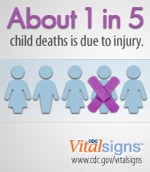Celebrating (Dis)Abilities
And I got to thinking. Could I do that? Could I speak to groups about living as a hearing impaired professional? I don't fit the stereotype of an under- or unemployed disabled person. I don't sign, although I've considered learning. I get more use from strategic use of hearing aids and increasing lipreading skills.
When I taught at an elementary school that housed the program for deaf and hard of hearing students, I found myself in the position of role model. When I showed the class my hearing aids on the first day of school, my three hearing impaired students sat up straighter in their chairs; their teacher was one of them. The lone girl in the group was thrilled to see an adult woman with a hearing impairment - a college graduate and full time professional.
Many years later, I'm teaching in a different school - one where the families and teachers are less understanding of my disability. I've been thinking of designing an empathy style activity for students and staff where they get to sample and experience various disabilities.
The empathy piece is important. Children are often more accepting of differences than grownups. A teacher friend used a cane to support her as her MS progressed. She explained her condition to the students, reassured them that it wasn't catching, and all was well. No one harrassed her for using the disabled parking space, for walking slowly in the hallways, or for using a cane in public.
One principal used to come in and talk to my class each year, cautioning them not to try to get around me because of my hearing. She compared that kind of behavior to knocking a wheelchair down the stairs or kicking the white cane out from in front of a blind person. She was credible: her word was law in the schoolyard and school building. I handled my share of student discipline, but they didn't dare take advantage of my hearing loss.
I hope that the next generation of students won't even think twice about taking advantage of a disabled person, teacher or not. I hope that the children I teach now will take it in stride when they know someone with a disability, whether they be a teacher, coworker, neighbor, or relative. Familiarity in this case builds comfort, and comfort builds respect.
If respect for each other increases as a result of celebrating abilities, it's all right with me.
Labels: disabilities, teachers live at school
 Stumble It!
Stumble It!




3 Comments:
I love that your community does this!!
I do a disability awareness presentation for each grade at my school twice a year ... our school houses the moderate, severe, and profound classes (5 total classes, over 50 students in all) for the entire county so the gen ed children have a lot of exposure to other students with differences and they are extremely empathetic and understanding, as well as amazingly respectful. The problem I run in to is that the middle school that the gen ed kids at my elementary school go to is NOT the middle school that houses the moderate/severe/profound students ... and the most of the students at the middle school that *does* house those classes have not had any exposure to disabilities - and some of them *aren't* as empathetic, understanding and respectful.
Familiarity does breed tolerance and respect. Amen. I'm seeing kids act more accomodating towards others than I was when I was a kid.
That's really cool. I have Fibromyalgia and a host of other health issues and I'm often in so much pain I can hardly walk. I have thought about getting a handicap tag so those really bad days aren't as bad but I know people will look at me weird because I don't "look disabled."
And sometimes I'm not "disabled" but I never know when I am going to be. I know some people with lupus, MS and fibro that use a cane just so people really believe them. It's sad. We are far from trying visibly disabled fairly and can't even understand the ones that "look normal" I'm sure you fit that mold.
I'm also dyslexic and have irlen syndrome so that's always fun to deal with.
Post a Comment
<< Home